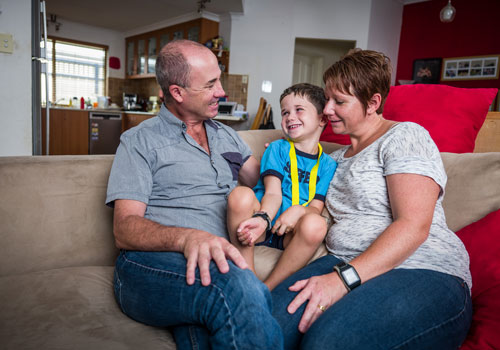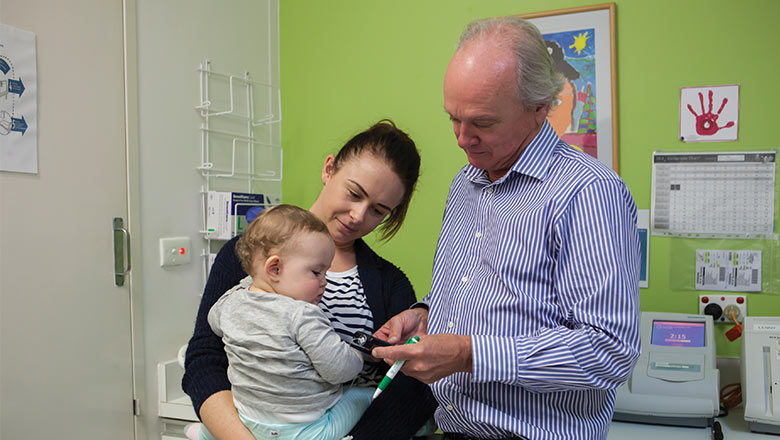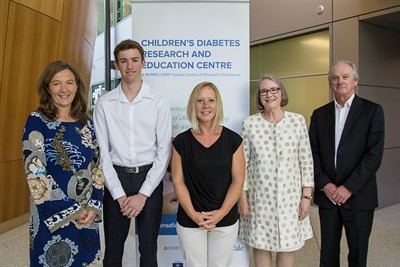Search
Research
Adolescent type 1 diabetes cardio-renal Intervention trialAn international clinical trial looking at intervention with Angiotensin Converting Enzyme Inhibitors (ACEI), Statins, or a combination of both
Research
Safety evaluation of closed loop system during hypoglyaemic stimuliThe purpose of this study is to evaluate the safety of new system called the Medtronic MinimedTM 670G that has been designed for long term outpatient use.

News & Events
New focus on type 2 diabetesResearchers at the Children’s Diabetes Centre at The Kids Research Institute Australia have begun researching type 2 diabetes to tackle the rising incidence of the disease among young people in Australia.

News & Events
The hidden burden of diabetesWhen Jodie and Brad Scott welcomed their fourth child Heath into the world, they were prepared for the many sleepless nights that come with caring for newborns.

News & Events
Improving the lives of kids with Type 1 DiabetesDiabetes research got a huge boost when the WA Children’s Diabetes Research and Education Centre for Research Excellence opened late last year.

News & Events
Major focus for children’s diabetes research in WALaunch of the WA Children's Diabetes Research and Education Centre for Research Excellence (CRE) on the eve of World Diabetes Day.
Research
Using continuous glucose monitoring to detect early dysglycaemia in children participating in the ENDIA study (Sub Protocol)Aveni Liz Haynes Davis BA (Hons), MBBChir, MA (Cantab), PhD MBBS FRACP PhD Principal Research Fellow Co-director of Children’s Diabetes Centre
Research
A New Era for PPARγ: Covalent Ligands and Therapeutic ApplicationsPeroxisome proliferator-activated receptor γ (PPARγ) is a prominent ligand-inducible transcription factor involved in adipocyte differentiation, glucose homeostasis, insulin sensitivity, inflammation, and cell proliferation, making it a therapeutic target for diabetes, metabolic syndrome, autoimmune diseases, and cancer.
Research
Environmental Determinants of Islet Autoimmunity (ENDIA) longitudinal prospective pregnancy to childhood cohort study of Australian children at risk of type 1 diabetes: parental demographics and birth informationThe Environmental Determinants of Islet Autoimmunity Study is an ongoing Australian prospective cohort study investigating how modifiable prenatal and early-life exposures drive the development of islet autoimmunity and type 1 diabetes in children. In this profile, we describe the cohort's parental demographics, maternal and neonatal outcomes and human leukocyte antigen genotypes.
Research
Developing type 1 diabetes resources: a qualitative study to identify resources needed to upskill and support community sport coachesCommunity sport coaches in Western Australia lack an understanding, the confidence, and knowledge in supporting young people with Type 1 diabetes (T1D). This study aims to identify what T1D educational resources are required to upskill coaches in Western Australia.
